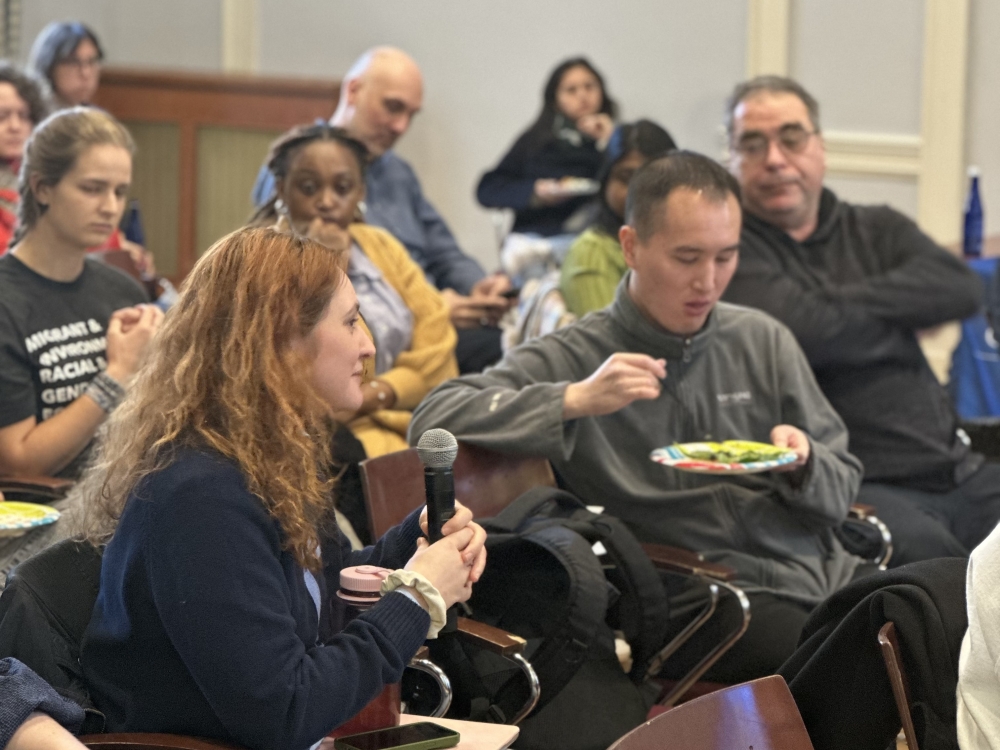
Event Highlights
‘Hope as a Human Rights Practice’ with Professor Gulika Reddy ‘16
28 April 2025, NEW YORK | On March 11, 2025, the Human Rights Institute at Columbia Law School hosted an event featuring Professor Gulika Reddy, Director of the Human Rights and Conflict Resolution Clinic at Stanford Law School. The event was part of HRI’s Spring Event Series Activism Against Authoritarianism.

Professor Reddy shared her new research on the role of hope in sustaining human rights activism in the face of uncertainty and setbacks. Reddy is a leading voice in the human rights field, and former Columbia Law School student and Human Rights Clinic Supervising Attorney. Her work focuses on community-led human rights advocacy around the world.
Reddy addressed the critical question of how activists can maintain their resolve when there is an uncertain way forward and unknown probability of success. Drawing on a range of different disciplines and her extensive experience as both a scholar and advocate in India and the United States, she has developed a novel typology of hope that explores the varied effectiveness of different forms of hope for the human rights field. She also shared insights into the power of what she calls “transformative hope,” explaining how it can drive creative social change and enable activists to continue their work despite significant barriers.
A key part of Reddy's message centered on the concept of hope as a practice that needs to be intentionally cultivated and sustained over time. She offered a range of clear strategies for how individuals and institutions can do this.
A particularly important aspect of Reddy's talk was her focus on the mental health impacts of human rights work and the need for collective care. “We need to invest in practices that will help us stay in the game,” Reddy emphasized, encouraging the audience to prioritize collective care as a critical component of long-term sustainability in human rights advocacy. She also discussed the value in investing in community and making space for joy. “We must take the work seriously but not take ourselves too seriously,” she said, quoting an activist who found solace in dark humor amid the relentless nature of their work.

Reddy’s presentation offered a much-needed reminder of the importance of hope, emotional resilience, and creativity in human rights activism. She encouraged the audience—students, faculty, and practitioners alike—to see hope not as an abstract concept, but as a critical and transformative tool or practice that can sustain their work, even in the most difficult circumstances. By building a strong scaffolding for the work and fostering the capacities needed to embody transformative hope, activists can continue the fight for justice with renewed energy and purpose.
The event was co-sponsored by the Columbia Law Students Human Rights Association, the Columbia Journal of Transnational Law, and the Columbia Human Rights Law Review.
***
The Human Rights Institute advances international human rights through education, advocacy, fact-finding, research, scholarship, and critical reflection. We work in partnership with advocates, communities, and organizations pushing for social change to develop and strengthen the human rights legal framework and mechanisms, promote justice and accountability for human rights violations, and build and amplify collective power.
